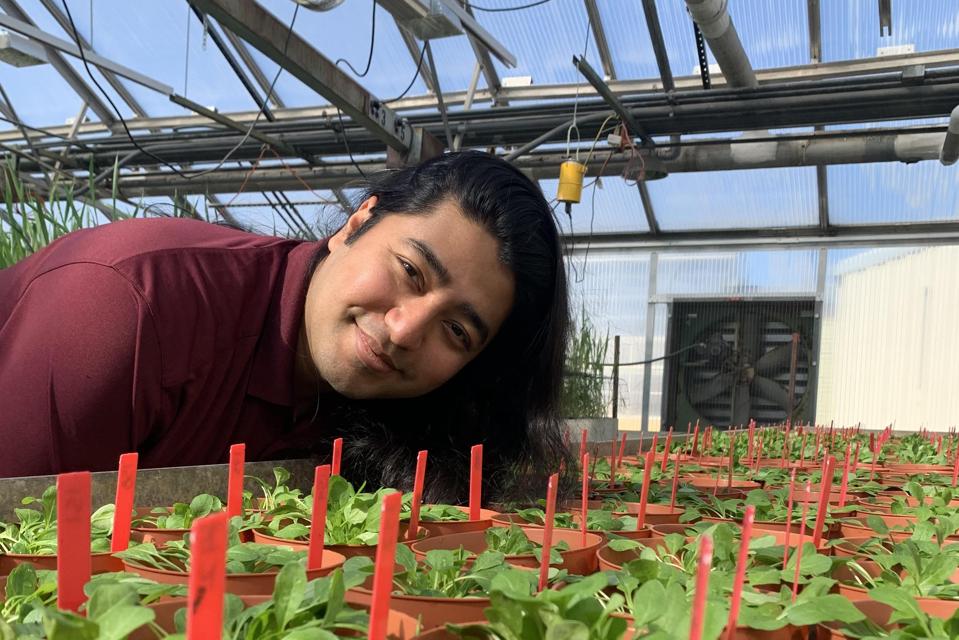The AI Dilemma: The Perfect World or The Perfect Storm?
The positive and negative risks of artificial intelligence.
From Forbes
Read Moreturning a wild plant into a brand new oilseed crop suitable for biofuels, jet fuels, and food oil.
From Forbes

Zenith Tandukar, Ph.D. Candidate at University of Minnesota, originally from Nepal
Zenith Tandukar, originally from the Kathmandu Valley in Nepal, is now part of an effort to domesticate a wild plant into a brand new oilseed crop suitable for biofuels, jet fuels, and food oil.
Tandukar, who is currently a PhD candidate at University of Minnesota, says the idea is to breed a wild plant called pennycress to a point that it can be an oilseed crop (like canola or sunflowers) which can fit into the fallow periods between the main corn and soybean rotations in Midwest cropping systems.
“The biggest challenge with this project is trying to emulate the process of domestication that takes place over thousands of years into a decade worth of research and development,” he says.
Tandukar says will ensure a more sustainable intensification of agriculture, more ecosystem benefits for the environment, and more profit for the farmers.
“My main projects are looking at understanding the genetic basis of seed size and oil content in pennycress so we can maximize seed and oil yields for our farmers,” he says, “This is extremely important to ensure widespread adoption of pennycress as a cash cover crop.”
Tandukar says working with orphan crops with limited genetic and genomic resources is also a big challenge, but that he has had the great fortune of contributing to the most comprehensive version of the pennycress genome that’s currently being finalized.
“The novelty and limitless potential of this research opportunity is the most exciting part of working with pennycress,” he says.
Tandukar grew up in Kathmandu, the capital of the Himalayan nation of Nepal.
“I am part of the Newar tribe who are indigenous inhabitants of Kathmandu valley,” he says, “My personal journey into my research area has been a series of fortunate events.”
Tandukar left Nepal after high school to pursue higher education, in the aftermath of the country’s civil war, with the goal of finding his own path that was not medical or engineering school, the default career expectations in Nepal.
“My Eureka moment came later in life when I started doing undergraduate research in a maize genetics lab,” he said, “A whole new world of possibilities opened up that I had never considered before.”
Tandukar says that for him, the scariest part of life in STEM in the US is the systematic barriers against people of color, marginalized and underrepresented communities.
“The erasure of cultural identity is not a new experience for me as there is prevalent discrimination against the indigenous Newar people, our language and culture in Nepal,” he says, “In addition, as an international student from Nepal, I’ve had to deal with my fair share of racism and alienation in the educational and academic system that was not built with people like me or with others from the global south in mind.”
However, Tandukar says he does feel very fortunate to have found a scientific community in Minnesota that values his scientific contributions, as well as accepting him for who he is.
“I think it is extremely important for people from the global south to recognize these disparities and actively challenge them in every step,” he says, “My sincere hope is that the inequities in STEM stop with our generation as we work towards advocating for and building the communities we wished for when we were starting out”.
From Forbes